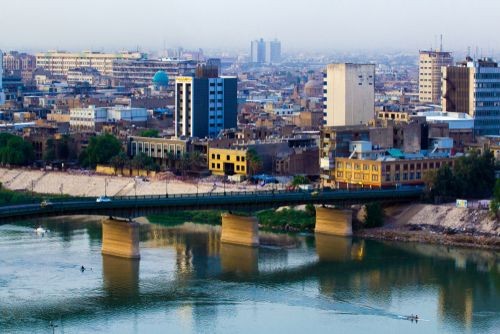Iraq and Lebanon suffer from the absence of patriotism and the spread of sectarian divisions
By Ahmad Abdul-Rahman in Egypt
Since the American invasion in 2003, Iraq has been destined to follow the footsteps of Lebanon. Like Lebanon, Iraq is governed by geography, different from it in history, and similar to it in the birth of the modern entity after the First World War. Mesopotamia was from the days of Assyria and Babylon to the days of Saddam Hussein, a regional power, and the Land of the Cedars (Lebanon) was a passage for the invaders.
In 1920, General Gouraud, who was French, announced the establishment of "Greater Lebanon", which included the regions of Mount Lebanon and areas that were under Ottoman rule in the Wilayat (administrative division) of Beirut and the Wilayat of Damascus. But, the inhabitants of those areas refused to accept the entity and and considered themselves "Lebanese".
In 1921, King Faysal I, appointed by Winston Churchill, said: "In my opinion, there are no Iraqi people in Iraq yet, but human agglomerations devoid of any patriotic idea and saturated with religious traditions." With time, things changed on the road to independence in Lebanon from France, and in Iraq from Britain.
Today, the problem of sectarianism in Beirut appears to be more dangerous compared to that of Baghdad. The Lebanese people are divided into "components". The centres of power are distributed among the sects. The presidency of the republic in Lebanon is for the Maronites (a Christian sect), the speaker of parliament is for the Shiites (or Sh'ia), and the prime minister is for the Sunni Muslims. In Iraq, the presidency of the Republic is for the Kurds, the prime minister is for the Shiites, and the presidency of the Council of Ministers is for the Sunnis.
While being in Iraq, what the US Governor envoy Paul Bremer took pride in is building a government system, although, arguably, it was built on on "wrong foundations". His main goal was to swiftly hold elections before building any state and social institutions. He said: "It took America seven years to gain independence, 12 years to write the constitution, and 20 years to develop parties even though they were saturated with British culture. As for Iraq emerging from tyranny, it did so in two years. "What the US invasion led to is not only the Iranian political influence through the assumption of the parties and militias that trained them to power, but also the establishment of a sectarian ideological army under the title 'Popular Mobilization'." This became ISIS.
The same is true in Lebanon. The Israeli incursion there faced a national resistance, that quickly became, with the power of the Syrian military and political influence and Iranian planning, an "Islamic resistance" unique to Hezbollah, who believed in the Wilayat al-Faqih. (The transfer of all political and religious authority to the Shia clergy and makes all of the state's key decisions subject to approval by a supreme clerical leader).
This geopolitical shift in the two countries, with the deterioration of the economic and social conditions and the growth of corruption, led to the October revolution in Iraq. People were protesting over high unemployment, poor basic services, and state corruption. In Lebanon, the revolution sought change and a rejection of the existing political system.
Change in Lebanon did not happen, however. Rather, the ruling and controlling mafia dispersed the revolutionaries and guarded the corrupt authorities, while preventing those revolutionaries from participating in ruling the country. Partly the change is through forcing the forced "Shiite House", "the Sunni House" and "the Kurdish House" to accept Mustafa Al-Kazemi as head of the government even though he did not belong to any political party.
What Al-Kazemi did in Iraq is what Lebanon has failed into do: distancing itself from the conflicts and rejecting settling scores. Iraqi President prime minister Barham Saleh called Iraq an "arena for settling scores" between regional and international powers, and openness to the Arab depth.
The beginning was seeking to boost ties with Saudi Arabia and Egypt. Hence, Saudi Arabia signed agreements in the fields of energy, petrochemicals and agriculture with Iraq, and planning began for a land route to the Hajj through Najaf. In the meantime, Egypt, signed military, security and economic cooperation agreements with Baghdad. The objective of these agreements was to balance relations with all neighbours, amid ensuring America had an important role. Of course, this strategy is not without risks.


Comments